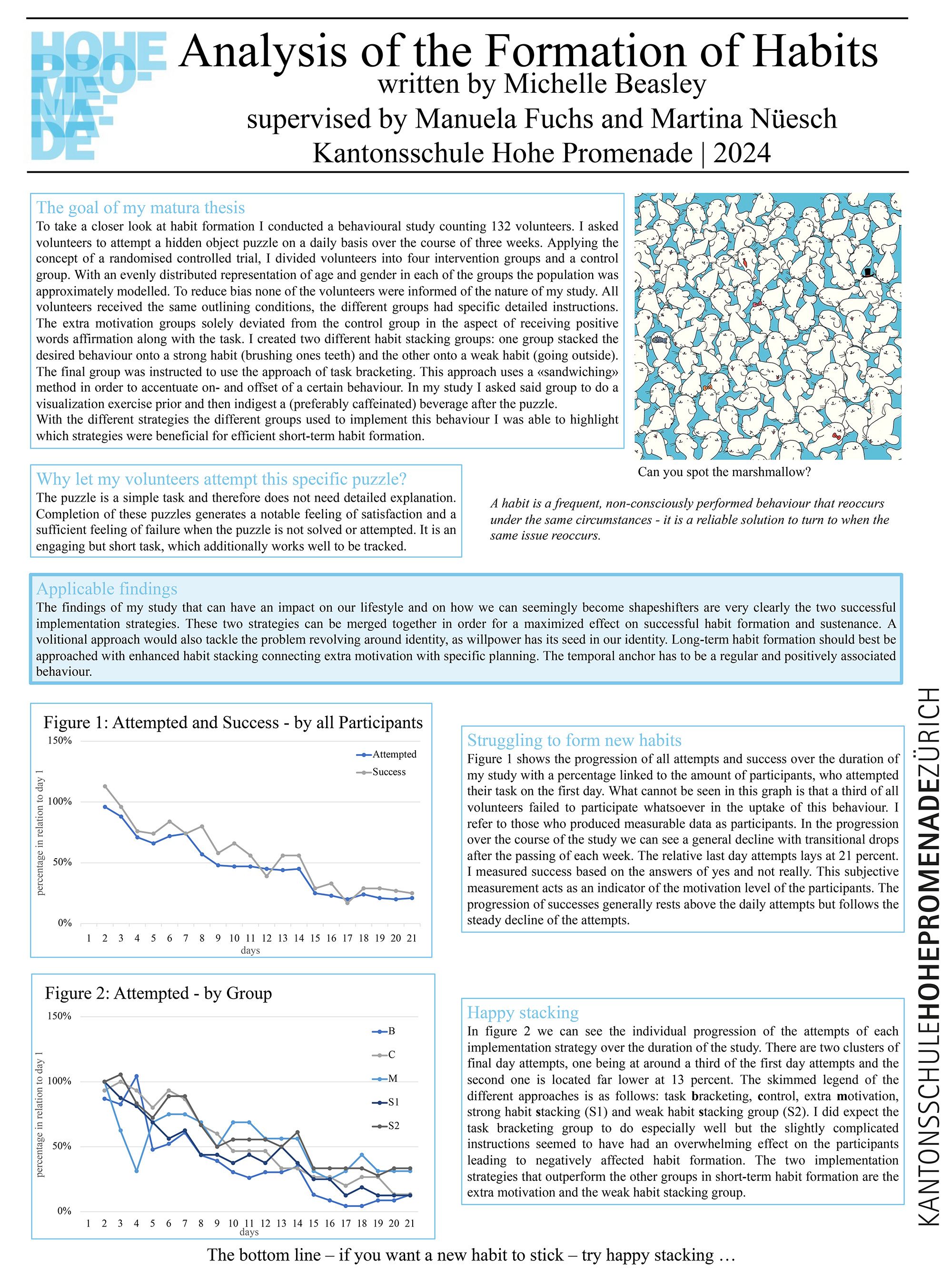Autor/-in:
Beasley Michelle
Analysis of the Formation of Habits
Manuela Fuchs
Martina Nüesch
Kantonsschule Hohe Promenade
Fach: Biologie
Abstract
In order to understand how habit formation works and to determine which factors impact the process the most, I conducted a study with 132 volunteers. Over the course of three weeks I asked volunteers to attempt a hidden object puzzle on a daily basis. To allow for comparative analysis, the volunteers were divided into five groups, four intervention groups and a control group. The four intervention groups I designed based on behavioural literature were: extra motivation, two habit stacking groups and one task bracketing group. The extra motivation group received additional positive words of affirmation along with the daily tasks. The weak habit stacking group was asked to stack the puzzle attempting on top of their routine of going outside, the strong habit stacking group used teeth brushing as a temporal anchor and task bracketing sandwiched the task between two established habits.
The ages of all the volunteers varied between 15 and 86 years old with a balanced representation of the genders. The study was performed anonymously, ensuring none of the volunteers were aware of the nature of the study. The loss of a third of the volunteers before the study even started, begins to illustrate the difficulty of engaging in a new behaviour. There is a clear downward trend ending at 20% of the first day participants. The implementation strategies of extra motivation and the weak habit stacking had the highest completion rate of the task at 30% on the final day. Anchoring the desired habit to a positively associated preexisting habit seems to have a beneficial effect on habit formation. I expect volitional approaches to be highly effective even in long-term habit formation and sustenance. I was not able to correctly predict all of the tendencies but as demonstrated in my matura thesis they were to be anticipated.
